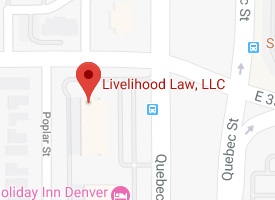
As an employee of the State of Colorado or one of its agencies, you may have rights and remedies available to you that are not available to workers at private companies. One of these rights is the ability to appeal employment decisions with the Colorado State Personnel Board (“SPB”).
The SPB grants state employees the right to appeal specific personnel actions. A state worker’s ability to challenge an employment action is critical because an adverse employment decision could lead to a reduction in pay or total job loss. To ensure that you understand your rights as a state employee, here’s what you need to know–and do–to file an appeal with the SPB.
Can all state workers file a SPB appeal?
Only classified state workers may appeal employment actions to the SPB. While certified state workers can appeal a variety of employment actions, uncertified workers can only appeal an employment action if it was based on discrimination. A state worker becomes certified when they satisfactorily complete a probationary or trial service period in a classified position.
Unclassified workers may not appeal employment actions to the SPB. Instead, these workers should file a charge of discrimination with the Colorado Civil Rights Division (CCRD) or the Equal Employment Opportunity Commission (EEOC).
What is the difference between classified and unclassified positions?
State law designates certain job titles as classified positions. A classified designation means that applicants for the job must reside in Colorado (unless otherwise specified) and meet specific job metrics for the agency to include them in the qualified applicant pool. Your job description will outline whether your position is classified under the State of Colorado Personnel System.
The State deems government job titles without a classified designation as unclassified. Some examples of unclassified positions include administrative professionals, faculty and graduate assistants, interns, trainees, and non-student hourly employees. State workers in unclassified positions do not have a right to an SPB appeal. However they are authorized to bring forth claims with the Colorado Civil Rights Division (CCRD) or the Equal Employment Opportunity Commission (EEOC).
What are probationary and trial service periods?
Probationary status or being in a trial service period may affect your rights.
The State considers a newly hired employee in a permanent position a probationary appointee. Usually, a probationary appointment does not last more than 12 months unless extended for periods of leave. A trial service period lasts for 6 months unless extended by employee leave as well. During a trial period, a state agency promotes a certified worker to a higher class position or transfers them to different job titles in the same class on a trial basis.
What types of employment actions are appealable to the SPB?
A certified employee may directly appeal an employment action if it adversely impacts their pay, status, tenure, performance rating or award. All other qualifying employment actions are only appealable after the employee has exhausted all other remedies available through the internal grievance process.
Uncertified employees can only appeal an employment action if the employment action was taken for discriminatory reasons. For example, if a probationary employee was terminated because of his or her disability (or other protected class qualification), they can appeal that decision. However, if a probationary employee was terminated due to performance reasons, they cannot appeal the decision.
When can an employee file an SPB Appeal?
Regardless of whether the employment action is directly appealable or brought through an internal grievance process, a state worker must file an appeal with the SPB within 10 days of the employment action at issue. Employees also must provide a copy of the appeal to their state agency employer at the same time.
How long is the SPB appeal process?
The timeline of the SPB appeal process depends on a number of factors.
If you file a discrimination claim with the SPB, the SPB will give you the option to transfer the case to the CCRD prior to your hearing. If you choose to pursue this path, the appeal will be transferred to the CCRD for investigation and a hearing will not be scheduled until the CCRD concludes its investigation. The CCRD takes on average 12-18 months to investigate any charges of discrimination, therefore, this significantly lengthens the time-frame.
If you forego a CCRD investigation, then the Board must first determine whether the appealed action is automatically granted a hearing or whether the Board must determine whether a hearing is necessary. Any action that adversely affects a certified employee’s current base pay, status, or tenure as defined by the Board rule may be appealed and will be set for a hearing. If the employment action does not adversely affect a certified employee’s current base pay, status, or tenure, and where the employee does not have a right to a hearing, appeal, or review by law or rule, the Board may grant a discretionary hearing.
In situations where a hearing is immediately granted, the process generally proceeds quickly. But, in scenarios where the Board has discretion over whether to set a hearing, there are several steps that must take place first. In the case of a discretionary hearing matter, the Claimant and Respondent are both required to file Information Sheets with the Board outlining the evidence that they would present at a hearing. Then an Administrative Law Judge (“ALJ”) reviews the matter and prepares a recommendation for the SPB regarding whether the matter should be granted a hearing or not. The ALJ can also recommend that a hearing not be granting, but that another action be taken by the state. For example, the ALJ may suggest that the state entity review their promotional processes to ensure that promotions do not have a discriminatory component.
The ALJ’s recommendation then goes to the SPB who makes the final ruling regarding whether to grant a hearing.
If a hearing is going to be granted (whether by rule or discretionarily) the Board must set the hearing date within 120 days of the appeal’s filing, and the employee must be prepared to present their case on that day. This is like a mini-trial.
After the hearing, the ALJ has 45 days to issue their final recommendation and transfer the matter back to the SPB for a final decision.
Is an attorney required for an SPB Appeal?
An attorney is not required for an SPB appeal. However, the process can be extremely overwhelming without one. The SPB rules are complicated and nuanced. An attorney can help you navigate the process to ensure that you are meeting all deadlines and positioning yourself in the best way possible.
If your rights as a state employee have been violated, you need a lawyer to help you hold the state accountable. Livelihood Law can help. Contact us today so that we can assist you with your SPB appeal or other employment law concern.


